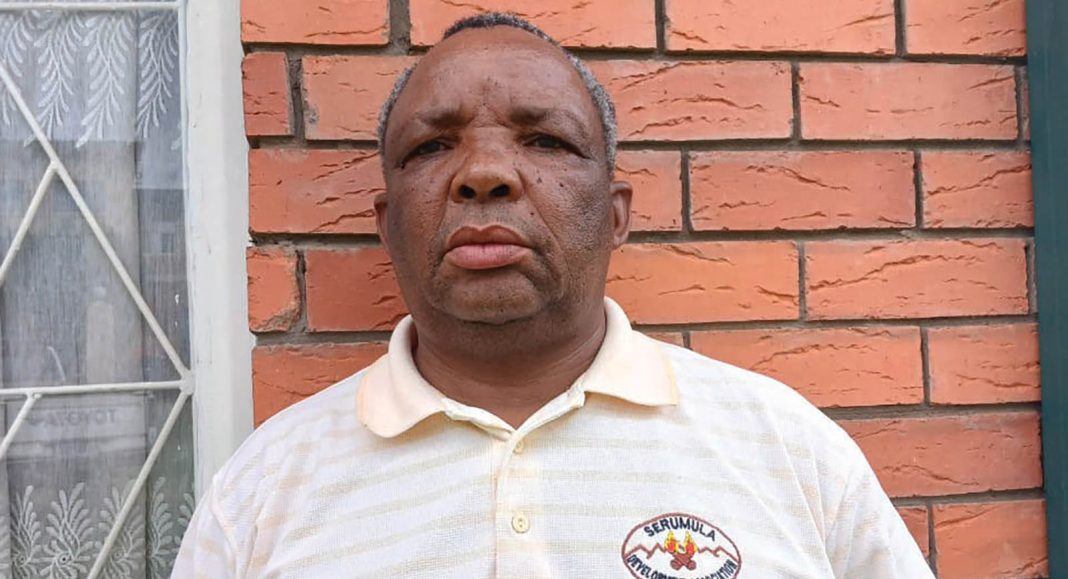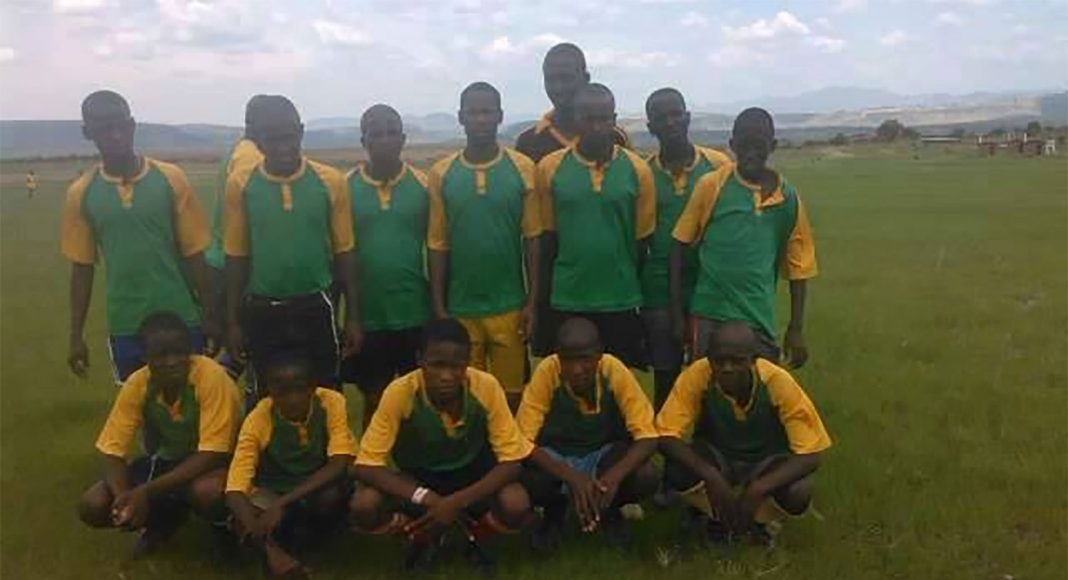Lesotho’s abundant wool and mohair resources remain improperly managed underdeveloped despite surging global demand for sustainable textiles.
The products’ inherent qualities including their durability, thermal regulation and biodegradability make them key players in the textile industry.
The Lesotho National Wool and Mohair Growers Association (LNWMGA) is pushing for increased recognition of these natural fibres.
The association is calling for increased utilisation and promotion of these products in both local and international markets to capitalise on the growing demand.
In this interview with theReporter’s ‘Mantšali Phakoana, LNWMGA chairperson, Mokoinihi Thinyane emphasised the need for Lesotho to take advantage of the increasing world demand to create high-quality sustainable products.
The unique properties of wool and mohair coupled with their low environmental impact, make them attractive alternatives to synthetic fabrics. By promoting the use of these fibres, Lesotho can bolster its textile industry and also contribute to an eco-friendlier ethical fashion industry.
Kindly tell us about the upcoming Wool Round Table to be held in Lesotho next year.
The Lesotho National Wool and Mohair Growers Association (LNWMGA) in partnership with the International Wool Textile Association (IWTO) will host the Wool Round Table in Maseru in November next year.
This is an important event where wool and mohair farmers will be planning the upcoming annual congress that is expected to be held a month later. The round table event will be used as a platform to access if Lesotho is capable to host the congress. Moreover, the round table event will bring together key stakeholders in the industry to discuss important issues and develop strategies for the future.
In short, the annual congress brings together the world’s wool professionals for knowledge-sharing and networking, while the Wool Round Table focuses on internal IWTO business and insight into the IWTO member country where it takes place. The round table will provide an important platform for dialogue and collaboration.
As a member of the IWTO, the proposal to host the Wool Round Table in Lesotho faced a challenging from the start due to concerns by some countries over the country’s economic muscle to hold an event of this magnitude. This made it difficult for us to secure enough votes.
Despite these initial obstacles, our determination and commitment to the development of the country’s wool and mohair industry eventually prevailed, paving the way for this important event to take place on our home soil.
The decision for Lesotho to host the Round Table was reached at the annual Round Table of the International Wool Textile Organisation (IWTO), that was held on 27 and 29 last month, in Turkey, where wool industry leaders and experts convened to explore wool’s potential to drive sustainable and innovative solutions for the textile industry. More than 80 attendees represented wool industries from 26 countries, including Lesotho and South Africa.
Can you give us a brief overview of the partnership between your association and the International Wool Textile Organisations (IWTO) and the purpose of this collaboration.
Let me first explain what IWTO is; it is a global authority for standards in the wool textile industry. Since 1930, the organisation has represented the collected interests of the global wool-textile trade and industry. Its members include wool growers, traders, primary processors, spinners, weavers, garment makers and retailers of wool and allied fibres as well as organisations related to wool products.
With 38 members in 27 countries, the organisation’s membership encompasses all stages of the wool textile pipeline. From farm to retail, through research, education and knowledge sharing, IWTO ensures a sustainable future for wool. IWTO holds two events each year; being the Wool Round Table and Annual Congress.
Now, to your question. Our partnership with the IWTO is an important step toward strengthening and growing the wool and mohair industry in Lesotho. The purpose of this collaboration is to bring together expertise and resources from our association with those of the IWTO, with the aim of creating a more sustainable, competitive, and resilient industry.
Through this partnership, we hope to attract more investments, improve the quality of our products, as well as increase our market share.
What are the expected outcomes of both the upcoming round table to be held in Lesotho and the conference? How will the wool and mohair industry in Lesotho benefit?
The outcomes of both the wool round table and the congress are expected to be highly beneficial for the local wool and mohair industry.
First, the round table will provide a platform for key stakeholders including farmers, traders, government officials and experts to discuss challenges and opportunities facing the industry globally. This open and constructive dialogue will help identify priority areas for improvement, as well as potential solutions.
Secondly, the IWTO congress will give us a global stage to showcase our products, share best practices, and establish valuable partnership with other industry players.
Can you explain the problems faced by Lesotho’s wool and mohair farmers and how this partnership might help address those challenges.
Lesotho’s farmers face a number of challenges that hinder their productivity and profitability, this includes the rampant livestock theft plaguing Lesotho poses a grave threat to the local industry. The losses experienced by farmers who rely on sheep and goats for their livelihoods are devastating and the sheer scale of the problem has created an atmosphere of fear and uncertainty, severely hindering the industry’s ability to thrive and grow.
Another challenge is climate change which presents a significant challenge for us as wool and mohair farmers as unpredictable weather patterns lead to reduced yields and poor-quality wool and mohair.
This situation is exacerbated by the limited availability of reliable weather information, which leaves farmers in the dark about how to prepare their farms for the coming season. Lack of forewarning and preparations can also result in significant financial losses and jeopardise the livelihoods of farmers and their families.
In addition, farmers struggle with limited access to markets both domestic and international, which means they are unable to sell their wool and mohair at competitive prices.
What specific strategies or initiatives will the Lesotho National Wool and Mohair Growers Association and the IWTO be implementing to strengthen the wool and mohair industry in Lesotho?
The LNWAGA and IWTO will be implementing several strategies and initiatives such as capacity building programmes for wool and mohair farmers, providing them with training on best practices for wool and mohair production, sheep and goat breeding and business management.
In addition, the partnership will facilitate agreements between farmers and buyers, both domestic and international, to create more stable and profitable markets.
Furthermore, the partnership between the LNWMGA and IWTO will work to address environmental concerns, promoting sustainable farming practices that reduce the impact of wool and mohair production on the environment.
The partnership will also help explore ways to leverage technology and innovation to improve the efficiency and effectiveness of wool and mohair production, processing and distribution. This could include the use of precision agriculture, biotechnology and other cutting-edge solutions to address challenges facing the industry.
In your opinion, what are the main opportunities and potential for growth for the Lesotho wool and mohair industry in the near future?
The Lesotho wool and mohair industry holds significant potential for growth in the future. As demand for natural and sustainable fibres continues to rise on the global market, the high-quality wool and mohair sourced from the country’s unique mountains could capture a significant share of this market.
Additionally, the country’s traditional wool and mohair production methods, which involve small-scale farmed and artisans, could provide a competitive advantage in the market. With the right support and investment, these artisans can produce unique and high-quality products that appeal to consumers who value authenticity and craftsmanship.
How can the Lesotho wool and mohair industry tap into emerging markets and diversify its customer base to increase revenues and create new opportunities?
Firstly, the need to identify new markers is crucial. Emerging markets such as China, India, Southeast Asia offer a wealth of opportunities for the industry.
By understanding the tastes and preferences of consumers in these regions, and tailoring products to meet their needs, Lesotho’s wool and mohair producers can tap into these lucrative markets.








